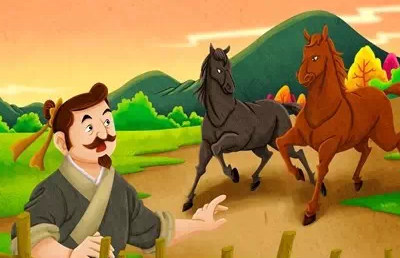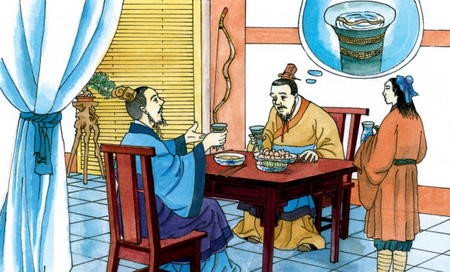Chinese Idioms or Chéngyǔ About Animals
What is a Chinese idiom/Chéngyǔ?
Briefly speaking, Chengyu (成语, Chéngyǔ) are Chinese idioms that are normally made up of four Chinese characters. Chengyu are usually handed down from way back in Chinese history, and thus, over this long periodof time, there have been many stories that have resulted in many chengyu.
Chengyu are considered the collected wisdom of the Chinese culture. Through the insights learned from chengyu, you’ll discover the experiences, moral concepts, or admonishments from the older generations of Chinese. Nowadays, chengyu still plays an important role in Chinese conversations and education. It is therefore important to know some common chengyu as you learn the language.
Chengyu about animals
The influence of animals in Chinese culture is extensive, as they play a part in Chinese zodiac, Chinese lucky culture, puns, phrases, and, of course, chengyu. The following stories are famous ones in Chinese culture from which chengyu have been derived. Through these stories, it’s easy to understand the meaning behind these chengyu.
1. 狐假虎威 (Hú jiǎ hǔ wēi)
Meaning:
Literally, this means 狐(fox)假(pretend)虎(tiger)威(power). What the chengyu is saying is that a fox borrows the tiger’s fierceness to scare or threaten others. We use this chengyu to indicate someone who is using influential people’s power to bully or pressure others.
Story:
A cunning fox was caught by a fierce tiger, the king of the forest, and was about to be killed.
The fox hysterically yelled at the tiger, “You can’t eat me! I’ve been sent by the Emperor of Heaven to rule the forest! You don’t want to anger the Emperor of Heaven, do you?”
The tiger didn’t believe the fox. “What an excuse! You think I believe you?”
“If you don’t believe me, why not follow me into the forest and see how other animals react when they see me?” said the fox.
With great suspicion and doubt, the tiger followed the fox into the forest as the fox took the lead. As they approached other animals, they all ran away in fear, not because of the fox, but because of the fierce tiger behind him. The fox simply pretended that the other animals were afraid of him, and not the tiger. The tiger, however, saw the running animals and was fooled. He thought the fox was telling the truth, and did not figure out that the animals were actually afraid of him.
Thus, the fox saved himself from being eaten by the tiger with this trick.
Example:
老板的侄子常常狐假虎威,在公司里命令其他员工替他跑腿。
(Lǎobǎn de zhí zi chángcháng hújiǎhǔwēi, zài gōngsī lǐ mìnglìng qítā yuángōng tì tā pǎotuǐ.)
The nephew of the boss always order other staff in the company to run errands for him, making use of his uncle’s power.

2. 井底之蛙 (jǐng dǐ zhī wā)
Meaning:
This means “the frog at the bottom of the well”, and is commonly used to describe someone who is short-sighted and has a narrow and limited view of the world. This chengyu encourages us not to limit our understanding of the world, and that we should broaden our horizons as best as we can.
Story:
A frog once lived at the bottom of a well. From here, the most he could see was the small piece of at the well’s opening. All around him were the well’s walls and the shallow water. He never knew how broad and beautiful the outside world was.
One day, a sea turtle showed up at the well entrance and looked down. When the frog saw the visitor, he proudly showed off to the sea turtle, “Hey, I am the host of this well, and you know what? I am so happy in here. I can hop, sleep, take a small walk, or play in the water. Tadpoles and crabs can never experience my enjoyable lifestyle. Why don’t you come inside and visit my place?”
The sea turtle heard what the frog said and was curious, so he tried to climb down. However, the sea turtle couldn’t fit through the entrance. He pulled back and said to the frog, “Have you ever lived in the ocean and experienced swimming freely in the sea? The ocean has no boundary, and the scenery is spectacular. Even during times of drought, we are still free and happy swimming in the ocean because it’s as vast as the sky. Living in the ocean is real happiness.”
Then the sea turtle left to return to the sea, leaving the speechless frog at the bottom of the well.
Example:
别再当井底之蛙了! 你应该要出去看看这个世界。
(Bié zài dāng jǐngdǐzhīwāle! Nǐ yīnggāi yào chūqù kàn kàn zhège shìjiè.)
Don’t be the frog at the bottom of the well! You should go out and see this world.

3. 塞翁失马 (sài wēng shī mǎ)
Meaning:
This literally means “The old man Sai (塞翁) loses his horse(失马)”. This means “a blessing in disguise”. Usually, this chengyu is followed by “焉知非福 (Yān zhī fēi fú)”, meaning “Who knows whether it’s a bad thing or not?” “塞翁失马,焉知非福” is one of the most commonly said Chinese proverbs.
Story:
Once upon a time, there was an old man named Sai. In his stable, he kept many horses. One day, one of his horses escaped. The neighbors came to Sai and tried to comfort him, but instead of being upset, Sai said, “Who knows? Maybe it’s a blessing in disguise!”
A few days later, the escaped horse came back to the stable with another beautiful and healthy horse. The neighbors heard about this, and they came to Sai again, congratulating him for having another horse
Sai didn’t seem to be happy though. “Well, it costs me nothing to get this horse, so maybe it’s not a good thing.”
A few days later, the son of Sai rode on this new and beautiful horse but unfortunately fell off of it, breaking his leg. The neighbors came once again to comfort Sai. Sai said once more that it may be a blessing in disguise.
In a few days, the land was suddenly thrust into a war, and most of the men in the village were recruited to the army. Many of them died in the war, but the son of Sai couldn’t serve in the army because of his leg injury. Only then did the neighbors understand what Sai said about all this being a “blessing in disguise”.

Examples:
A: 你有听说昨晚那场派对发生火灾了吗?
(Nǐ yǒu tīng shuō zuó wǎn nà chǎng pàiduì fāshēng huǒzāi le ma?)
Did you hear about the fire at the party last night?
B: 对阿! 我本来要去那场派对,但是我拉肚子,没去。
(Duì ā! Wǒ běnlái yào qù nà chǎng pàiduì, dànshì wǒ lādùzi, méiqù.)
Yes! I was actually planning to go to that party, but I couldn’t go because of diarrhea.
A: 真是塞翁失马,焉知非福!
(Zhēnshi sàiwēngshīmǎ, yān zhī fēi fú!)
That was a blessing in disguise!
4. 杯弓蛇影 (bēi gōng shé yǐng)
Meaning:
This literally says 杯(glass)弓(bow)蛇(snake)影 (reflections), and means seeing the bow’s reflection on the glass as a snake. This chengyu means that someone is being paranoid or scared, worrying too much about things that are not real.
Story:
In ancient times, a man visited his relative Yuè Guǎng’s house. While having some wine, he saw a small snake in his glass. He felt uneasy, but he didn’t want to bother Yue Guang, so he still finished the wine. Afterwards, Yue Guang heard that his relative was seriously sick and was not getting better. Yue Guang eventually heard his sick relative talk about the snake in the glass, and he was confused, since he believed it was impossible that this could have happened.
Yue Guang took the glass, and saw that there was a snake pattern carved into a decorative bow hanging on his wall. He realized that it must’ve been the reflection of this snake pattern on the glass that his relative saw. Yue Guang invited his relative to his house again and explained the reflections to him. The relative realized he was wrong, and gradually recovered from his illness.

Example:
自从看了那部鬼片之后,晾在外面的衣服都被她看成鬼魂,真是杯弓蛇影啊!
(Zìcóng kànle nà bù guǐ piàn zhīhòu, liàng zài wàimiàn de yīfú dōu bèi tā kàn chéng guǐhún, zhēnshi bēigōngshéyǐng a!)
Since she watched that horror movie, she even thinks the clothes hung out there were ghosts! She’s afraid of illusions!
A: 你为什么一直往那边看?
(Nǐ wèishénme yīzhí wǎng nà biān kàn?)
Why do you keep looking that way?
B: 没事,老板们在讲话,时不时往我这看,我怕我会被开除。
(Méishì, lǎobǎnmen zài jiǎnghuà, shíbùshí wǎng wǒ zhè kàn, wǒ pà wǒ huì bèi kāichú.)
Nothing, just that the bosses are talking and turning to me often. I am thinking that they are going to fire me.
A: 你听谁说的呀? 别杯弓蛇影了。
(Nǐ tīng shéi shuō de ya? Bié bēigōngshéyǐngle.)
Where did you get that? Don’t be afraid, it’s all in your head!
Memorize and use Chinese chengyu through stories
These are just a few chengyu. Chinese learners may find chengyu hard to remember and learn because there are so many of them. However, most chengyu have background stories like the ones above. Through these stories, it is much easier to memorize common and useful chengyu. Learning chengyu is also an interesting way to learn Chinese.
I hope this article has not only increased your knowledge about Chinese idioms, but has helped you learn more Chinese as well! If you are interested in more Chinese chengyu and their stories, don’t hesitate to comment below and tell us what else about chengyu you would like to read about!





Looks good! Interesting chengyu with a well-written article. Definitely will check out those authors at TutorMandarin 😛
This information is very organized, and useful.
Thank you that I can learn more about 成语!